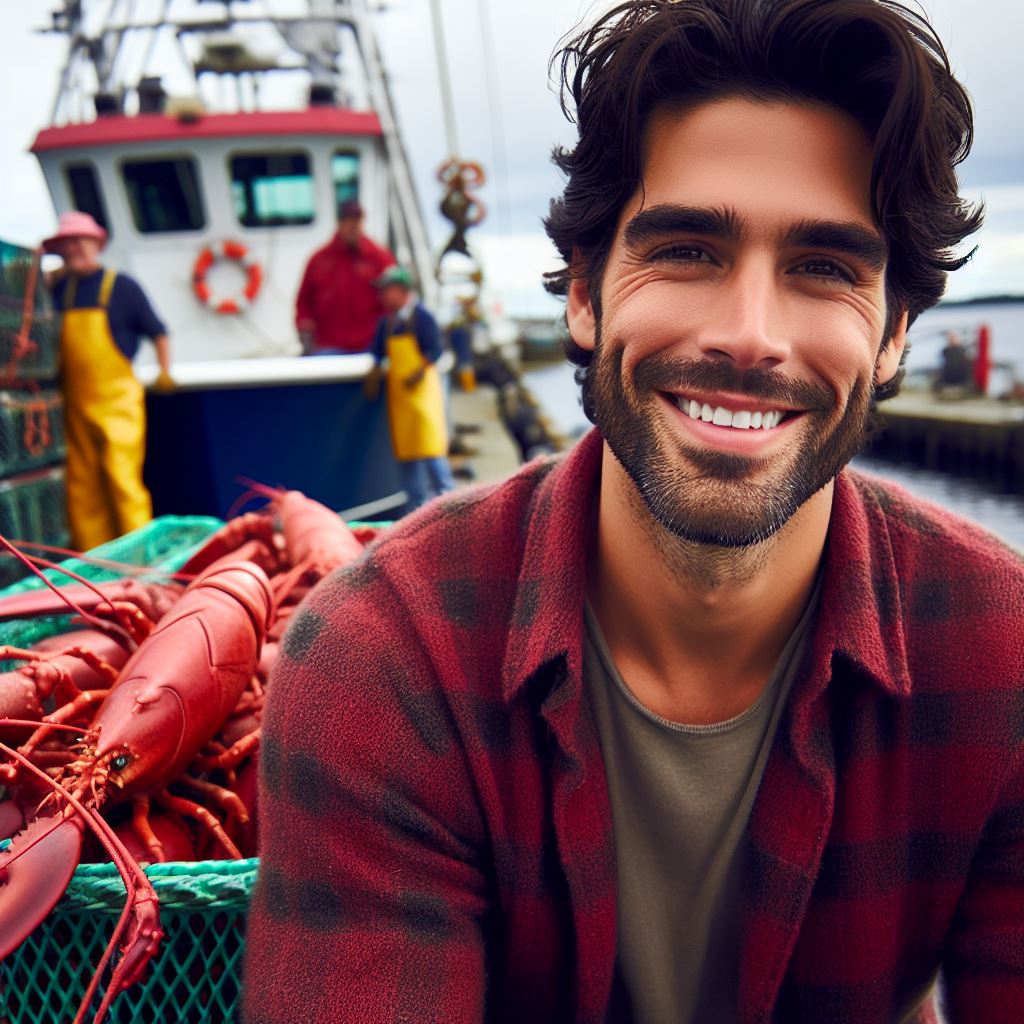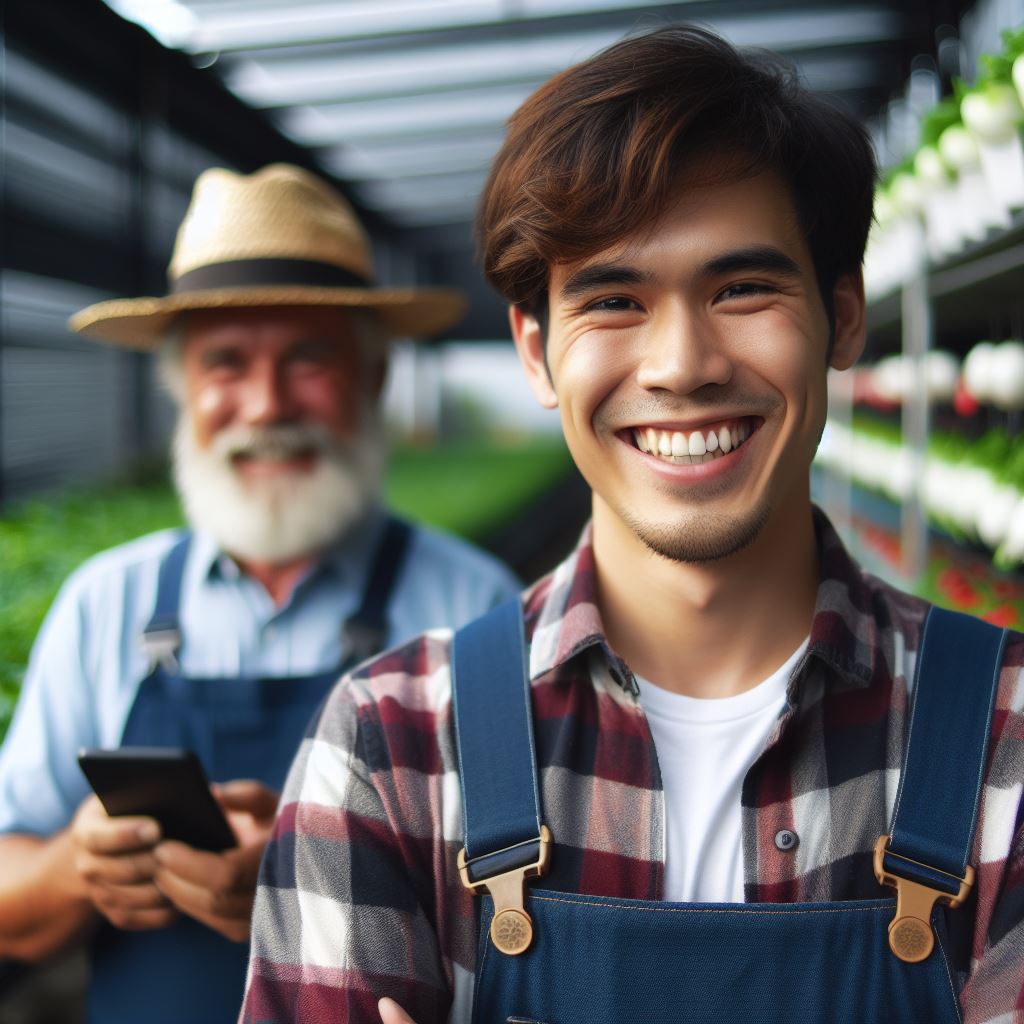Introduction
Maine Lobsterman Sustainable Practices.
Maine’s lobster industry is renowned for its commitment to sustainability.
Lobstermen in Maine prioritize practices that ensure the long-term health of marine ecosystems.
This focus on sustainability is crucial in preserving the delicate balance of ocean life while also supporting the livelihoods of those in the industry.
By adopting sustainable practices, Maine lobstermen demonstrate their dedication to responsible stewardship of natural resources.
Their efforts set an example for other fisheries worldwide, showcasing how it’s possible to harvest seafood while minimizing negative impacts on the environment.
From responsible trap placement to careful handling of bycatch, every aspect of the lobstering process in Maine is guided by principles of sustainability.
In this section, we will delve into the various sustainable practices employed by Maine lobstermen.
We will explore how these practices not only benefit the environment but also contribute to the long-term viability of the lobster industry in the region.
Through innovation and dedication, Maine lobstermen are leading the way towards a more sustainable future for both their industry and the oceans.
Overview of Maine Lobsterman
What a lobsterman does
Lobstermen are fishermen who specialize in catching lobsters using traps in the coastal waters of Maine.
They play a crucial role in the economy of Maine, as lobstering is a significant industry for the state.
Here are some key points to understand the occupation of a Maine lobsterman:
- Lobstermen’s primary task is to set and haul their lobster traps, which are strategically placed on the ocean floor.
- They use bait, such as fish or other crustaceans, to attract lobsters into their traps.
- Lobstermen need to check their traps regularly, sometimes multiple times a day, to collect the lobsters caught.
- Once they retrieve the traps, they measure the lobsters to ensure they meet the legal size requirements.
- Legal-sized lobsters are kept, while undersized or females with eggs are carefully released back into the water.
- Lobstermen have to adhere to strict regulations and quotas set by the state to ensure the sustainability of the lobster population.
- They may also engage in other related activities, such as repairing and maintaining their traps or boats.
Significance of lobstering in Maine’s economy
Lobstering holds immense significance in Maine for various reasons:
- Maine’s lobster industry is iconic and has a rich history dating back to the early 19th century.
- Lobstering provides income and employment opportunities for thousands of people living in Maine’s coastal communities.
- The economic contribution of lobstering extends beyond the fishermen to processors, distributors, and exporters, creating a ripple effect.
- Lobstering is a way of life for many Maine families, passing down traditional techniques and knowledge from generation to generation.
- Maine’s lobster industry has a strong reputation for sustainable practices, ensuring the long-term health of the lobster population.
- The state’s commitment to sustainability has helped maintain high-quality lobsters that are in demand both nationally and internationally.
- Lobstering also attracts tourists who come to Maine specifically to indulge in fresh lobster dishes, supporting the local economy.
In fact, Maine lobstermen play a crucial role in the state’s economy by harvesting and maintaining a sustainable lobster population.
Their day-to-day tasks involve setting and hauling traps, adhering to regulations, and contributing to the rich lobstering tradition.
The industry not only generates income and employment but also promotes tourism and supports other sectors involved in processing and distributing lobsters.
Maine lobstermen are dedicated to preserving the lobster population for future generations and continue to be vital to the state’s economy and cultural heritage.
Importance of Sustainable Practices
With the increasing global concerns about the environment, sustainable practices have become crucial in all industries, including the fishing industry.
Lobsterman in Maine, known for their sustainable practices, play a significant role in ensuring the preservation of the marine ecosystem.
The need for sustainable practices in the fishing industry:
- Preservation of biodiversity: Sustainable practices in fishing help maintain the delicate balance of marine ecosystems, safeguarding the biodiversity of species.
- Long-term economic viability: By embracing sustainable fishing practices, lobstermen ensure the continuity of their profession, securing a stable income source for future generations.
- Mitigating overfishing: Unsustainable practices, such as overfishing, deplete fish populations, disturb food chains, and disrupt the habitats of other marine organisms. This can ultimately lead to the collapse of fisheries.
- Protecting vulnerable species: Sustainable practices reduce the accidental capture of non-target species, including endangered or protected marine animals.
Environmental impact of unsustainable practices
- Habitat destruction: Unregulated fishing methods like bottom trawling can cause severe damage to underwater habitats, destroying coral reefs and essential breeding grounds.
- Eutrophication: Overfishing disrupts the balance of predator-prey relationships, leading to an overabundance of certain species. This can result in eutrophication, where excessive nutrients cause harmful algal blooms, depleting oxygen levels and suffocating marine life.
- Bycatch and waste: Practices like using indiscriminate fishing gear can lead to significant bycatch, resulting in the unintentional capture and discard of non-target species like dolphins, turtles, and seabirds.
- Depletion of fish populations: Exploitative fishing practices can deplete fish populations, threatening the survival of commercially important species and causing a negative cascading effect on the entire ecosystem.
- Water pollution: Irresponsible fishing techniques often involve the use of harmful chemicals, including pesticides and fish-killing agents, resulting in the contamination of water bodies.
- Loss of fishing livelihoods: Unsustainable practices jeopardize the long-term sustainability of the fishing industry, putting the livelihoods of fishermen and their communities at risk.
By adopting sustainable practices, lobstermen in Maine demonstrate their dedication to preserving the marine environment, ensuring the future viability of their trade while minimizing adverse impacts on the ecosystem.
These practices include:
- Lobster trap design: Using traps specifically designed for lobsters reduces bycatch, allowing non-target species to escape unharmed.
- Seasonal closures: Implementing periods of closure during the breeding season allows lobsters to reproduce and replenish their populations.
- V-notching: Notching the tails of egg-bearing female lobsters and returning them to the sea helps protect the reproductive capability of the species.
- Size restrictions: Implementing size limits for harvested lobsters ensures that young lobsters have a chance to reach reproductive maturity, contributing to population sustainability.
- Certified sustainable seafood: Lobstermen can seek certification through programs like the Marine Stewardship Council (MSC), which ensures sustainable fishing practices while also providing market advantages.
Maine lobstermen serve as an exemplary model for others in the fishing industry, showcasing the importance of sustainable practices in preserving marine ecosystems.
By adopting these practices, we can ensure the long-term viability of our oceans and the future of fishing communities worldwide.
Read: Tractor Tracks: Innovations in Farming
Maine Lobsterman’s Sustainable Practices
When it comes to sustainable practices, lobstermen in Maine are leading the way in preserving their fishing industry and protecting the environment.
Employing Sustainable Practices
The lobstermen in Maine have made a conscious effort to employ sustainable practices in their fishing operations.
This commitment to sustainability ensures the long-term viability of their industry and the preservation of lobster populations.
Transform Your Agribusiness
Unlock your farm's potential with expert advice tailored to your needs. Get actionable steps that drive real results.
Get StartedUse of Biodegradable Traps and Ropes
One key sustainable practice employed by Maine lobstermen is the use of biodegradable traps and ropes.
These traps are made from environmentally friendly materials that break down over time, reducing the amount of marine debris in the ocean.
Implementation of Strict Size and Catch Limits
Maine lobstermen strictly adhere to size and catch limits to ensure the preservation of lobster populations.
By only harvesting mature lobsters and limiting the number of lobsters caught, they allow for the natural reproduction and growth of the species.
Efforts to Protect Marine Habitats
Maine lobstermen are actively involved in efforts to protect marine habitats.
They work closely with scientists and conservation organizations to identify and protect critical areas where lobsters reproduce and seek shelter.
In short, lobstermen in Maine are at the forefront of sustainable fishing practices.
Their use of biodegradable traps and ropes, adherence to size and catch limits, and efforts to protect marine habitats exemplify their commitment to preserving the lobster industry for future generations.
Read: Fruits of Labor: A Citrus Grower Tale
Collaboration and Regulation
Government agencies play a crucial role in regulating lobster fishing practices to ensure the sustainability of this iconic industry.
Collaborations between lobstermen, scientists, and environmental organizations also contribute to long-term sustainability.
Effective communication and cooperation are essential in these efforts.
Role of Government Agencies
Government agencies are responsible for establishing and enforcing regulations that protect lobster populations and preserve their habitats.
They set catch limits, implement size restrictions, and designate protected areas.
The goal is to prevent overfishing and maintain a healthy balance in the lobster population.
The Maine Department of Marine Resources (DMR) is the primary agency in charge of managing and overseeing lobster fishing in the state.
They work closely with lobstermen to develop sustainable practices that conserve the resource for future generations.
The DMR collaborates with other agencies, such as the National Marine Fisheries Service, to ensure compliance with federal regulations.
Through monitoring and data collection, government agencies gather information on lobster populations and their habitats.
This data helps determine the health of the lobster population, identify trends, and make informed management decisions. Lobstermen are required to report their catches, providing valuable information to these agencies.
Collaborations for Sustainability
Collaborations between lobstermen, scientists, and environmental organizations play a vital role in promoting sustainability.
By combining their knowledge, expertise, and resources, they can work towards shared goals that benefit both the industry and the environment.
Scientists conduct research and provide valuable insights into the biology, behavior, and ecology of lobsters.
Their studies help identify potential threats, such as climate change and habitat degradation, allowing for proactive measures to mitigate these risks.
Lobstermen can then adjust their practices accordingly to protect the resource.
Environmental organizations work alongside lobstermen to promote sustainable fishing practices and educate the public on the importance of conservation.
They conduct outreach programs, organize workshops, and provide funding for research and development of sustainable fishing gear.
Collaborations often involve joint projects and initiatives aimed at improving fishing gear and reducing its impact on the environment.
For example, scientists and lobstermen have worked together to develop modified traps that reduce the capture of undersized lobsters and non-target species.
Importance of Communication and Cooperation
Communication and cooperation among lobstermen, scientists, and environmental organizations are vital for the long-term sustainability of Maine’s lobster industry.
By fostering open dialogue and sharing knowledge, they can address challenges and find innovative solutions.
Lobstermen have valuable insights and first-hand experience that contribute to scientific research and conservation efforts.
Their participation in collaborative projects ensures that proposed solutions are practical and feasible within the industry.
Regular communication between lobstermen and government agencies helps adapt regulations based on real-world experiences and feedback.
This ensures that the regulations remain effective and feasible for the industry while also accomplishing the sustainability goals set forth by the agencies.
Cooperation among different stakeholders fosters a sense of collective responsibility and a shared commitment to the long-term health of the lobster resource.
By working together, lobstermen, scientists, and environmental organizations can achieve a balance between protecting the environment and sustaining the lobster industry.
In essence, collaboration and regulation are crucial elements in maintaining the sustainability of Maine’s lobster industry.
Government agencies provide the necessary oversight and enforcement of regulations, while collaborations between lobstermen, scientists, and environmental organizations enable the development of proactive and effective conservation strategies.
The importance of communication and cooperation cannot be overstated, as they lay the foundation for a thriving lobster industry that can coexist with a healthy marine ecosystem for generations to come.
Read: Sowing Hope: Farming in Changing Climes

Benefits of Sustainable Practices
Positive impacts of sustainable practices on lobster populations
Sustainable practices play a vital role in the well-being of Maine’s lobster populations.
By adopting responsible fishing techniques and regulations, lobstermen contribute to the conservation of this precious resource.
One of the significant positive impacts of sustainable practices is the ability to maintain healthy lobster populations.
These practices prioritize the harvest and conservation of mature lobsters while protecting their reproductive abilities.
Lobstermen identify and safely release undersized lobsters and egg-bearing females, allowing them to contribute to future generations.
Through these sustainable actions, lobster populations have witnessed prodigious recovery.
This not only ensures the availability of lobsters for future generations but also maintains the ecological balance of Maine’s coastal waters.
Economic benefits of ensuring the long-term viability of the lobster industry
Besides the environmental benefits, sustainable practices also have substantial economic advantages for the lobster industry and the local communities it supports.
By promoting long-term viability, sustainable practices help lobstermen maintain a stable income.
The industry relies on the presence and abundance of lobsters, and sustainable practices ensure that they remain plentiful.
A healthy lobster population allows for a sustainable harvest each year, providing economic stability for lobstermen and their families.
Showcase Your Farming Business
Publish your professional farming services profile on our blog for a one-time fee of $200 and reach a dedicated audience of farmers and agribusiness owners.
Publish Your ProfileThe economic benefits of sustainable practices are not limited to lobstermen alone.
The lobster industry is a significant contributor to the local economy in Maine.
It supports various businesses, such as seafood processors, wholesalers, and retailers, who rely on a thriving lobster industry.
By ensuring the long-term viability of this industry, sustainable practices help sustain jobs and boost economic growth in coastal communities.
The appeal of sustainably sourced lobsters to consumers
In addition to the environmental and economic advantages, consumers are increasingly drawn to sustainably sourced lobsters.
The appeal lies in the knowledge that their purchase supports responsible fishing practices that prioritize the health of lobster populations and the marine ecosystem.
With growing environmental awareness, consumers are more inclined to make sustainable choices in their purchasing decisions.
Sustainably sourced lobsters provide consumers with an opportunity to support practices that align with their values.
They can enjoy their favorite seafood while knowing that it was harvested responsibly, ensuring the preservation of the lobster populations for future enjoyment.
Furthermore, many consumers believe that sustainably sourced lobsters are of higher quality and taste better.
The careful handling and responsible fishing methods employed by lobstermen result in lobsters that are fresher and healthier.
This perception further reinforces the appeal of sustainably sourced lobsters in the market.
In review, Maine lobstermen’s adoption of sustainable practices has led to numerous benefits.
These practices not only aid in the recovery and preservation of lobster populations but also contribute to the economic well-being of the lobster industry and coastal communities.
Moreover, the appeal of sustainably sourced lobsters to environmentally conscious consumers further enhances their desirability in the market.
Read: Fencing Fields: A Sheep Farmer Diary
Challenges and Future Initiatives
Implementing sustainable practices in the Maine lobster industry comes with its fair share of challenges.
However, ongoing research and advancements in fishing techniques are providing hope for a more sustainable future.
Let’s delve into the challenges faced by Maine lobstermen, the current research initiatives, and the future initiatives aimed at improving sustainability.
Challenges Faced by Maine Lobstermen
- Stringent Regulations: Lobstermen face complex regulations that make it challenging to adopt sustainable practices.
- Economic Constraints: Implementing sustainable methods often requires additional investments, which can pose financial burdens for lobstermen.
- Resistance to Change: Some lobstermen may resist changing their traditional fishing methods due to cultural and generational beliefs.
- Climate Change Impact: Rising water temperatures, ocean acidification, and changing marine ecosystems affect lobster populations and pose challenges for sustainability.
Ongoing Research and Advancements
- Trap Modifications: Researchers are designing and testing trap modifications to reduce bycatch and protect undersized lobsters.
- Technology Integration: Innovative technologies, such as GPS tracking and acoustic sensors, help monitor lobster populations and identify sustainable fishing areas.
- Collaborative Studies: Scientists, lobstermen, and environmental organizations collaborate on research projects to gather data on lobster behavior, reproduction, and habitat preferences.
- Marine Conservation Areas: The establishment of protected marine areas aims to preserve lobster habitats and promote sustainable fisheries.
- Selective Breeding: Research focuses on selectively breeding lobsters that grow rapidly, reproduce efficiently, and have increased resistance to diseases.
Future Initiatives for Sustainability
- Improved Lobster Gear: Lobstermen aim to develop gear designs that minimize whale entanglement risks while maintaining catch efficiency.
- Education and Outreach: Increasing public awareness about sustainable fishing practices and the importance of supporting the Maine lobster industry.
- Cooperative Lobster Management: Lobstermen, regulators, and scientists work together to develop management strategies that prioritize sustainability and economic viability.
- High-Tech Monitoring: Continued investment in advanced monitoring technologies ensures better data collection for sustainable lobster management.
- Ecosystem–Based Management: Shifting focus towards holistic ecosystem management to consider the broader impacts on marine species and the environment.
The challenges faced by Maine lobstermen in implementing sustainable practices are significant, but ongoing research and future initiatives provide hope for a sustainable future.
By addressing these challenges and embracing advancements in fishing techniques, the Maine lobster industry can continue to thrive while preserving the delicate marine ecosystem.
Discover More: Inspiring Farmers’ Stories That Will Touch Your Heart
Conclusion
This blog post highlighted the sustainable practices of Maine lobstermen.
We discussed key points such as the use of traps and biodegradable materials.
It is clear that sustainable practices are crucial in preserving the lobster industry for future generations.
The importance of sustainable practices cannot be overstated.
By adhering to these practices, lobstermen ensure the long-term viability of their livelihood and protect the delicate marine ecosystem.
It also ensures that consumers can continue to enjoy fresh, high-quality Maine lobster.
As readers, we have the power to make a difference. Supporting and promoting sustainable fishing practices is essential.
We can do this by choosing certified sustainable seafood and advocating for stricter regulations in the industry.
Let us stand together and be conscious consumers.
By supporting Maine lobstermen who prioritize sustainability, we contribute to the overall health of our oceans and the preservation of a cherished industry.
Join us in making a positive impact on the future of Maine lobster fishing.




